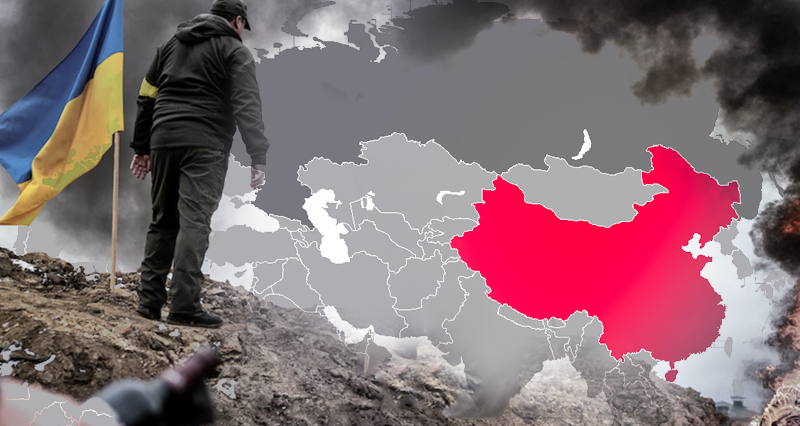The visit of Wang Yi, Director of the Office of the Foreign Affairs Commission of the CPC Central Committee, to Moscow on February 21 was one of the most discussed diplomatic meetings of the month. In addition to stepping up Chinese diplomacy in general, Beijing showed a clearer stance on the Ukrainian conflict and even proposed its own peacekeeping plan to resolve it.
The essence of the position
Because of its mentality to keep in the shadows, trying to keep a balance and not to provoke the aggravation of others’ conflicts – China has long tried not to make value judgments. However, now Beijing has begun to take a more active peacekeeping stance, caused by the aggressive actions of the United States.
On February 24, 2023 on the site of Foreign Ministry of China appeared 12 points on settlement of Ukrainian crisis.
The list includes items on respect for the sovereignty of all countries, rejection of the Cold War mentality, ceasefire and resolution of the humanitarian crisis.
China’s priority is stability near Russia’s borders as one of its key partners, as well as generally preserving the global nature of the world economy. A stable global economy for China as a major producer, supplier and investor is a key reference point for the country in the geopolitical dimension, since one is closely related to the other.
Moreover, it is also in China’s own interest on the issue of, for example, Taiwan: the U.S. “defends” Ukraine, but at the same time invades the space of Taiwan, internationally recognized as a part of China.
But what is important: China separates the globalization of values (homogenization) and economic globalization. The first one, including the suppression of local traditions and worldviews (Westernization, liberal values, neoliberal economic system etc.), is not of interest to China because the Chinese themselves are reverent and respectful of the mentality of others and protect their own and propose “ the Socialism with Chinese characteristics” as a valuable alternative to the cosmopolitan Western liberal capitalist model. But the global economical interconnectivity until recently has been of maximum benefit to China, which has raised its economy since the 1990s.
It is also important to note that Wang Yi’s visit to Moscow was formally considered a preparatory stage for President Xi Jinping’s spring visit to Russia. Thus, before Xi Jinping’s possible direct statements, the Chinese are preparing the diplomatic ground for the Ukrainian conflict and will continue to make their position clearer and clearer.
Against Westernization
Wang Yi’s meeting in Moscow came right after his European trips: in particular, his meeting in Munich with American and Ukrainian politicians. This is symbolic given that on the eve of the meeting, Wang Wenbin, spokesman for the Chinese Foreign Ministry, criticized Washington’s approach to the Ukrainian issue, urging that peace talks be held instead of inciting a war.
Peace requires the agreement of all parties involved: however, Ukraine, which should be the most interested in stopping the war, shows no sovereignty and is directly subordinate to the United States, and the United States is only exacerbating the conflict. Washington’s geopolitical and economic interests include getting rid of Russia and China as rivals and weakening the Europeans, who are perceived as its own vassals.
In the case of China, against the background of recent years of trade wars, there is particularly little reason for diplomatic rapprochement. It is in the U.S. interest that Beijing’s peace initiatives fail or be disrupted soon after their conclusion, which would damage Sino-Russian ties and generally have a negative impact on China’s image in the world. And if China has been driven to the point where it has begun to actively speak out about the conflict in Ukraine, it means that Beijing with its tactfulness has its limits of patience as well.
Forecast
It is unlikely that in the current climate the West will agree to peace or at least a halt to hostilities. For Kiev to sit down at the negotiating table, at the very least, Ukrainian forces must suffer serious defeats on the front lines. Negotiations, judging from the experience of the past year, are likely to be used to achieve military and technical superiority and counterattacks against Russia.
Under these conditions, the shortest way to a peace is through a victory for Moscow in a special military operation. The West’s unpreparedness for peace should bring Moscow and Beijing closer together in the long confrontation between the United States and its allies, to which both Russia and China are doomed in a new historical turn.

















Leave a Reply